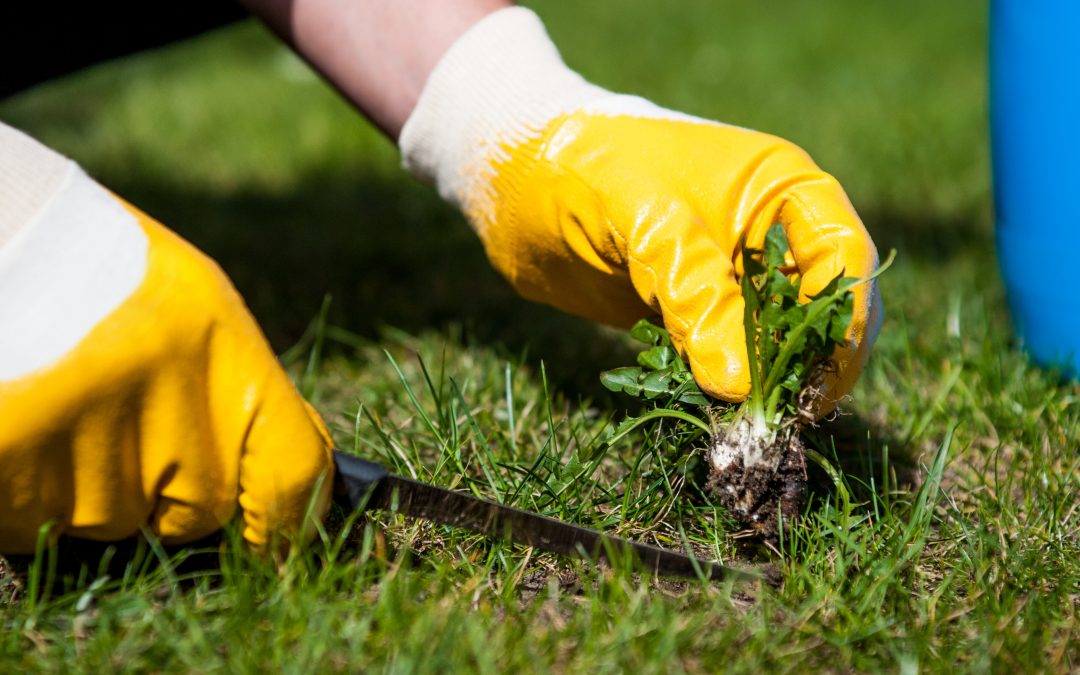Any homeowners who spend time on their yard and landscaping recognize the uphill battle of weeding. Invasive plants seem to pop up the second you turn your back, interfering with your yard’s aesthetic appeal and inhibiting the healthy growth of the plants you enjoy.
Manually pulling weeds is, of course, a safe and effective method of weed removal, but it is very labor-intensive. On the other hand, many weed killers on the market are highly effective and simple to use, but they pose a risk to other plants and trees in your yard.
So how do you choose a weed killer that is both effective against weeds and safe for your trees? Let’s take a look:
Vinegar
Undiluted white vinegar actually is a potent weed killer. Spray the vinegar on the leaves of weeds you want to kill, and the plants eventually will wither. This method works with vinegar you buy at the grocery store, or you can look at garden centers for vinegar with higher acidity for a quicker-acting choice. The higher acidity does make it more harmful to skin, grass, and other plants, however, so use this option with care.
Boiling Water
Bring a pot of tap water to a boil and pour it on the weeds’ leaves and stems. This chemical-free method works great in sidewalk cracks and in areas that you want to replant later. Although the boiling water shouldn’t hurt established trees, do be careful with it around flowers and other more fragile plants.
Salt Water
Using common table salt, make a mixture of one part salt to eight parts water and spray on the leaves and stems of the weeds. Avoid saturating the soil with the solution as it may impact flowers and shrubs nearby. Too much salt in the soil will stop smaller plants from being able to absorb water and nutrients through their roots.
Commercial Weed Killers
There are numerous chemical weed killers on the market, and some are highly effective. When used away from trees, they don’t pose much of a risk to the trees. However, for weeds around the base of a tree, it is best to avoid these chemicals and either pull weeds by hand or choose one of the other options listed above.
Spray with Caution
Regardless of the weed killer you use, organic or otherwise, take the following precautions during application to keep your trees and other plants safe:
- Spray on a windless day to avoid drifting.
- Cover delicate plants nearby.
- Do not saturate the soil with any chemical herbicide, including salt and vinegar solutions.
For any questions regarding trees on your property, reach out to Tampa Tree today. We’re here to help you!



